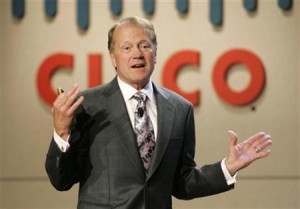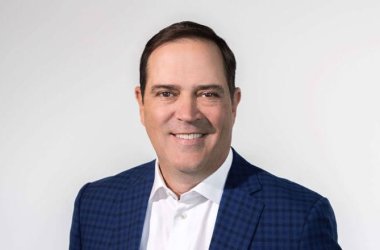 Cisco Systems’ CEO John Chambers has written to U.S. President Barack Obama, asking for his intervention so that U.S. technology sales are not affected by a loss in trust as a result of reports of surveillance by the U.S. National Security Agency.
Cisco Systems’ CEO John Chambers has written to U.S. President Barack Obama, asking for his intervention so that U.S. technology sales are not affected by a loss in trust as a result of reports of surveillance by the U.S. National Security Agency.
The letter follows reports that even as the U.S. warned customers that Chinese networking equipment may be used to spy on them, the NSA physically intercepted routers, servers and other network equipment to plant surveillance tools before repackaging the devices with a factory seal and sending the products to international customers.
“We simply cannot operate this way, our customers trust us to be able to deliver to their doorsteps products that meet the highest standards of integrity and security,” Chambers wrote in the letter to Obama, dated 15th May, which was published by news website Re/code. “We understand the real and significant threats that exist in this world, but we must also respect the industry’s relationship of trust with our customers.”
A Cisco spokesman confirmed Sunday that the letter had been sent to Obama.
Referring to the reports, including a photograph of what appeared to be a Cisco package being tampered with, Chambers said if the allegations are true, the actions will weaken confidence in the ability of technology companies to deliver products worldwide.
Chambers asked the Obama administration to take a leadership role and ensure that guidelines and reforms are put into place that “can be honoured across the globe.”
Referring to the reports that IT products including those from Cisco were being compromised on their way to customers, Cisco’s General Counsel Mark Chandler wrote in a blog post last week that the company complies with U.S. laws, like those of many other countries, which limit exports to certain customers and destinations.
“We ought to be able to count on the government to then not interfere with the lawful delivery of our products in the form in which we have manufactured them,” he added.
In December, eight top technology companies including Microsoft, Google, Facebook and Yahoo called for the reform around the world of government surveillance laws and practices, and asked the U.S. to take the lead. Some Internet companies were charged in disclosures last year by former NSA contractor Edward Snowden of providing to the NSA real-time access to contents on their servers, which the companies denied. There were also reports that the agency was tapping into communications links between the data centres of Yahoo and Google.
Following the controversy surrounding Snowden’s various disclosures about NSA surveillance, Obama announced in January some changes in the surveillance by the NSA, including in the controversial collection by the agency of phone metadata of U.S. citizens. He also called for new transparency and oversight into U.S. surveillance programs, privacy protections for foreigners, and promised to stop surveillance of leaders of allied countries except if there was a significant national security justification.
Cisco said in November that orders in China were in part affected by concerns about NSA surveillance.





